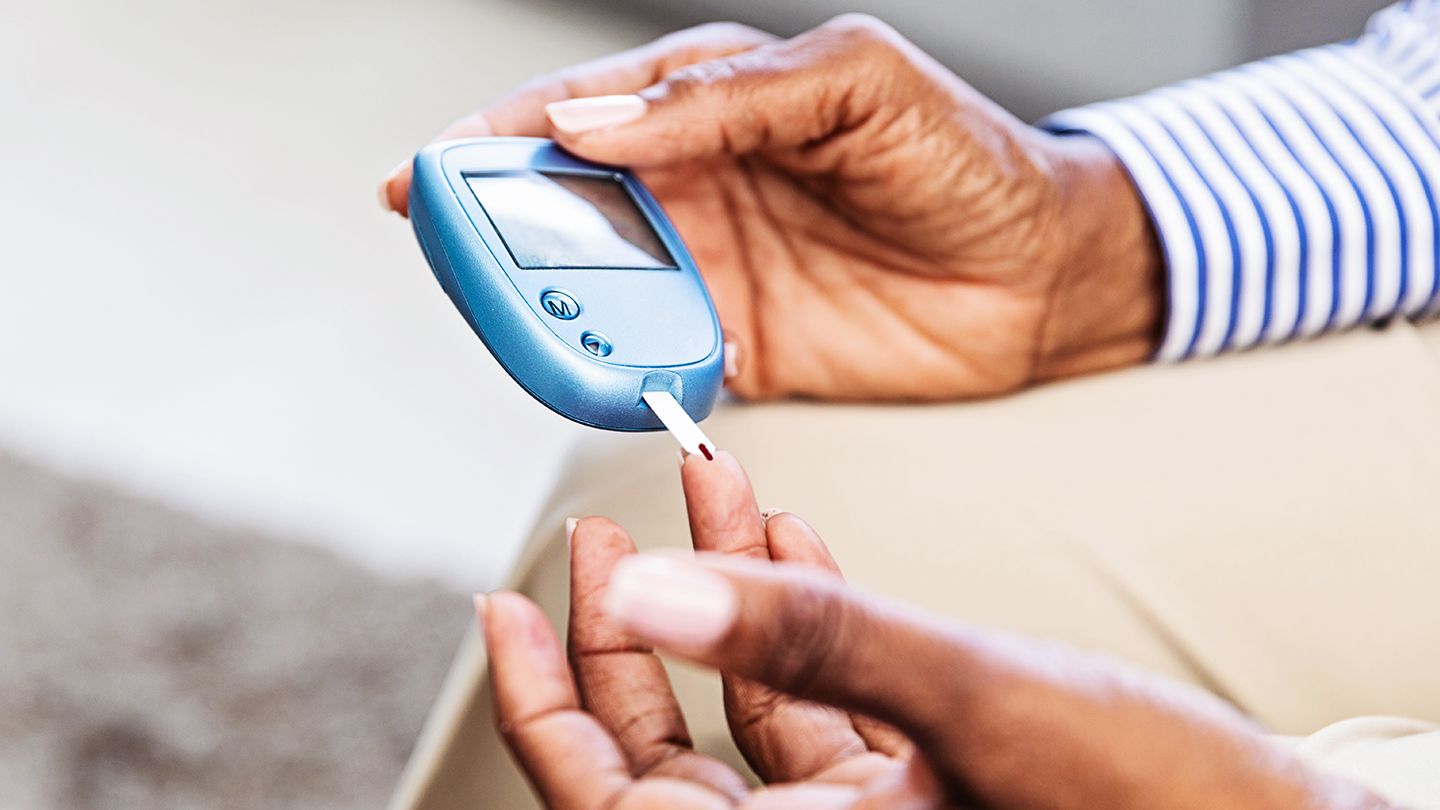
How Long Does Sugar Stay in Your Bloodstream?
Sugar is a vital source of energy for the body. However, too much sugar in the bloodstream for extended periods can be harmful. When you eat foods containing carbohydrates, they are broken down into simple sugars during digestion. The main sugar your body uses for energy is glucose. After a meal, glucose enters your bloodstream, causing a rise in blood sugar levels. But just how long does sugar stay elevated after eating? Here's what you need to know.
The Role of Insulin
When blood sugar levels rise, the pancreas releases the hormone insulin. Insulin signals to cells throughout your body to absorb glucose from your bloodstream and use it for energy. Insulin essentially serves as the "key" that unlocks cells to allow glucose to enter.
Without enough insulin, glucose cannot get into your cells efficiently. This causes it to remain circulating in the blood. In people with diabetes, insulin is either not produced at all (type 1 diabetes) or the body becomes resistant to its effects (type 2 diabetes). As a result, blood sugar remains elevated for longer periods.
How Quickly Is Glucose Absorbed?
Glucose absorption happens rapidly, usually within 30 minutes to 2 hours after a meal. However, a number of factors affect how quickly glucose enters your bloodstream and how long it stays elevated, including:
- The type of carbohydrates consumed - Simple sugars and refined carbs are absorbed faster than complex carbs and fiber.
- The amount of carbohydrates consumed - Eating larger quantities leads to greater blood sugar spikes.
- Presence of fat, protein, and fiber - These slow digestion and the absorption of carbs.
- Individual metabolism - Digestion varies from person to person.
- Medications and supplements - Some may slow carb absorption.
- Time of day - Blood sugar responses can vary throughout the day.
- Activity levels - Exercise helps absorb glucose from the bloodstream.
Glucose Uptake Varies By Carb Type
Not all carbs are treated equal when it comes to blood sugar. The main types of carbs in foods include:
- Simple sugars - Found naturally in fruits or added to foods. They only contain one or two sugar molecules bonded together, so they digest and absorb rapidly.
- Starch - Long chains of glucose found in grains, vegetables, and legumes. Starches take more time to break down than simple sugars.
- Fiber - Indigestible carbs that slow digestion of other carbs and help control blood sugar.
For example, a food high in simple sugars, like candy, can cause blood glucose to peak within 30-60 minutes. Starchy foods, like potatoes, may take 2-3 hours to fully impact blood sugar. Foods rich in fiber, like beans, are absorbed the slowest.
Moderate Carbs Are Recommended
Due to their effects on blood sugar, refined and high-carb foods like sugary drinks, white bread, pastries should be minimized. Instead, whole food sources of carbs that are higher in fiber like fruits, vegetables, whole grains, legumes are better options.
The recommended daily carb intake varies based on individual health goals and activity levels. Typically, aiming for 45-65% of total daily calories from quality carbs is suggested for good blood sugar control for most people.
Protein, Fat & Fiber Blunt Blood Sugar Response
Pairing carbs with protein, fat, and fiber is key to keeping blood sugar rises more gradual. Protein and fat digest more slowly, which helps slow the absorption of glucose. Soluble fiber also blunts carb absorption by forming a gel-like barrier.
For example, having oatmeal with almonds and berries will help keep blood sugar levels steadier compared to eating plain oatmeal. Nutrient-balanced meals and snacks are the best approach for healthy blood sugar control.
Tips to Keep Blood Sugar in Check
Managing blood sugar goes beyond just watching your carbs. Several healthy habits can help you maintain healthy glucose levels and prevent chronic highs and lows.
1. Exercise Regularly
Regular physical activity is one of the best ways to help lower and regulate blood sugar. Exercise makes cells more sensitive to insulin so glucose can be absorbed better. Try for 150 minutes of moderate activity or 75 minutes of vigorous exercise per week.
All types of movement count like walking, cycling, swimming, strength training and interval training. Distributing activity throughout the week provides the most lasting blood sugar benefits.
2. Add More Fiber
Consuming adequate fiber slows carb digestion and absorption of glucose into the bloodstream. Aim for at least 25-30 grams of fiber daily from sources like vegetables, fruits, whole grains, nuts and seeds.
Soluble fiber (like oats, beans, psyllium husk) forms a gel that blunts blood sugar spikes best. But insoluble fiber (like vegetables, wheat bran) also benefits blood sugar by improving satiety, insulin sensitivity and digestive health.
3. Stay Hydrated
Drinking enough fluids is vital for blood sugar regulation. Even mild dehydration can increase blood glucose concentrations and insulin resistance. Drink at least 6-8 glasses of water daily.
Unsweetened beverages like water, sparkling water, unsweetened tea and coffee are best. Limit sugary drinks that can cause blood glucose to spike. Adding lemon, mint or cucumber to water can help improve flavor.
4. Manage Stress
High stress and cortisol levels can increase insulin resistance and impair your body's ability to process glucose properly. Include healthy stress relief like meditation, yoga, deep breathing and journaling each day.
Getting adequate sleep and social connection also help manage stress hormones long-term. Prioritize self-care and don't hesitate to seek professional help managing stress if needed.
5. Eat More Anti-Inflammatory Foods
Chronic inflammation is linked to higher insulin resistance. Following an anti-inflammatory diet centered around vegetables, fruits, lean proteins, whole grains, nuts, healthy fats can benefit blood sugar levels.
Key anti-inflammatory foods include fatty fish, olive oil, walnuts, sweet potatoes, green leafy vegetables, berries, garlic and turmeric. Limit processed foods and foods high in trans or saturated fats.
6. Opt for Low Glycemic Index Foods
Choosing foods lower on the glycemic index can promote more stable blood sugar levels. Low glycemic foods cause a gradual rise in blood glucose rather than dramatic spikes.
Examples of low glycemic foods include non-starchy vegetables, nuts, seeds, beans, lentils, tempeh, berries, yogurt, chickpeas, rolled oats and quinoa.
7. Increase Cinnamon Intake
Cinnamon may help lower blood sugar by improving insulin sensitivity and slowing gastric emptying after meals. Try sprinkling it on oatmeal, yogurt or coffee or use cinnamon extracts.
Most studies use 1-6 grams daily of cinnamon. Using cinnamon supplements long-term is not recommended, so stick to food sources.
8. Stay Away from Refined Carbs and Sugars
Limiting intake of refined grains (white bread, crackers, cereals), sugary foods and beverages is crucial for controlling blood sugar spikes. Focus on whole food sources of complex carbs instead.
If you do want the occasional treat, pair it with fiber, protein or healthy fats to blunt the impact on blood glucose. Moderation and portion control is key.
9. Follow a Regular Eating Pattern
Eating meals and snacks at consistent times during the day can help stabilize blood sugar. Irregular eating patterns are linked to poorer blood sugar control.
Try to space meals 4-5 hours apart and avoid long stretches
FAQs
How long does it take for glucose levels to return to normal after eating?
For most healthy people, it takes 2-3 hours for blood glucose levels to return to pre-meal baseline after eating a mixed meal containing carbohydrates. This varies based on the amount and type of carbs consumed, as well as individual factors.
What foods spike blood sugar the most?
Foods high in simple sugars and refined carbohydrates tend to cause the biggest spikes in blood glucose levels. Examples include sugary drinks, candy, white bread, pastries, chips, and other processed foods.
Is occasional sugar consumption ok if my blood sugar levels are generally well controlled?
Eating processed sugars and refined carbs in moderation is unlikely to cause long-term issues with blood sugar control for most people. The key is balancing these foods out with adequate exercise, fiber, hydration, and an overall healthy diet.
Disclaimer: This article is for informational purposes only and does not constitute medical advice. Always consult with a healthcare professional before starting any new treatment regimen.




